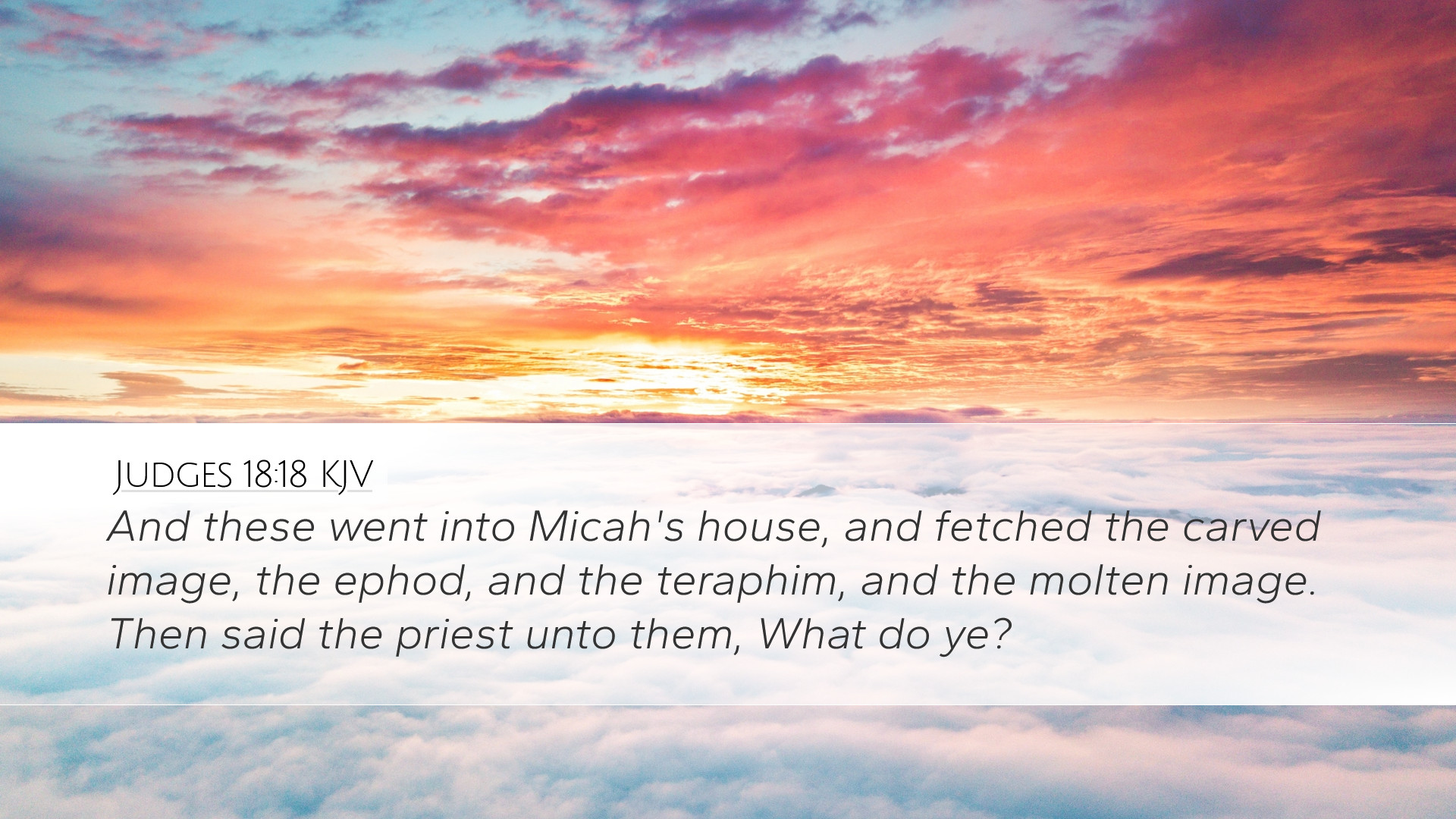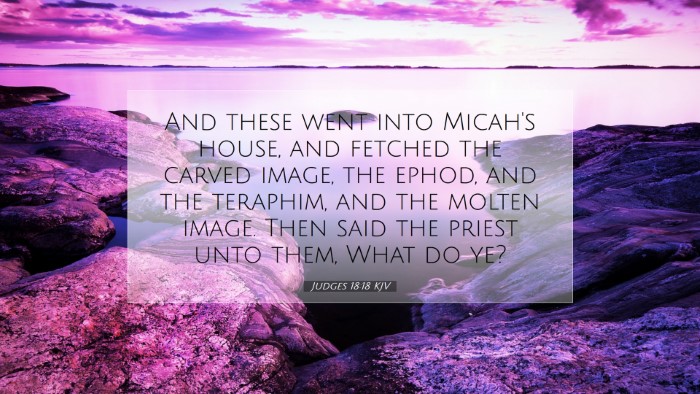Commentary on Judges 18:18
Judges 18:18 presents a significant moment in the narrative of the tribes of Israel, particularly focusing on the tribe of Dan’s expressed desire to find a new and secure inheritance. This verse states:
“And when they went in to Micah’s house, and fetched the carved image, the ephod, and the teraphim, and the molten image, they said to Micah, ‘What aileth thee that thou comest with such a company?’” (Judges 18:18, KJV)
Contextual Overview
This verse occurs in the broader narrative that describes the tribe of Dan’s search for territory and identity. At this time, Dan was struggling to secure a place amidst the challenges posed by the Philistines, which led them to a unique and dubious method of seeking a solution.
Interpretation and Analysis
Multiple commentaries offer excellent insights into this scene. The following notable points are drawn from various public domain sources:
Matthew Henry's Commentary
Matthew Henry highlights Micah's idolatrous practices and the moral depravity of the people. Henry interprets the actions of the Danites as indicative of their spiritual blindness and reliance on the tangible rather than the divine. He notes:
- Idolatry’s Allure: The allure of Micah’s idols indicates the corruption of the Danites’ faith.
- Loss of True Worship: Their actions reflect a departure from true worship, seeking physical representations rather than the true God.
Albert Barnes’ Notes on the Bible
Albert Barnes provides a detailed examination of the implications of spiritual practices of the Danites:
- Misguided Pursuit: Barnes emphasizes that the idol theft symbolizes their misguided pursuit of security.
- Community Conflict: The inquiry, “What aileth thee?” underscores the tensions between personal aspiration and community disputes.
Adam Clarke's Commentary
Adam Clarke delves into the theological implications of the verse:
- Symbolism of the Items: Clarke asserts that the items being taken (ephod and teraphim) were significant in the worship of Yahweh, pointing to a syncretistic approach.
- Shifting Loyalties: He discusses the shifting loyalties of Israel, particularly that while they were heirs to divine instruction, their faith was tainted by idolatry.
Theological Reflections
In reflecting on Judges 18:18, we recognize the following theological themes:
- Idolatry and its Consequences: This passage serves as a warning against the dangers of idolatry, which leads to a break in relationship with God.
- Seeking God: The quest for security should align with a quest for genuine relationship with God, rather than dependence on created things.
Practical Applications
The study of Judges 18:18 provides important lessons for contemporary believers:
- Vigilance in Faith: Believers must remain vigilant in their faith practices to avoid the pitfalls of syncretism, where worldly practices infringe upon divine fidelity.
- True Security: True security is not found in physical or material objects but in a relationship with God and adherence to His commands.
- Involvement in Community: There is a necessity to consider the implications of one’s spiritual journey on the broader community of faith.
Conclusion
Judges 18:18 serves not only as a historical narrative but also as a rich source for understanding the complexities of faith, idolatry, and community in the Israelite context. The insights drawn from public domain commentators like Matthew Henry, Albert Barnes, and Adam Clarke highlight the profound spiritual lessons that emerge from an analysis of this verse. As pastors, students, theologians, and Bible scholars reflect on this text, they are reminded of the timeless challenge of ensuring that their worship aligns with the true nature of the God they seek to serve.


